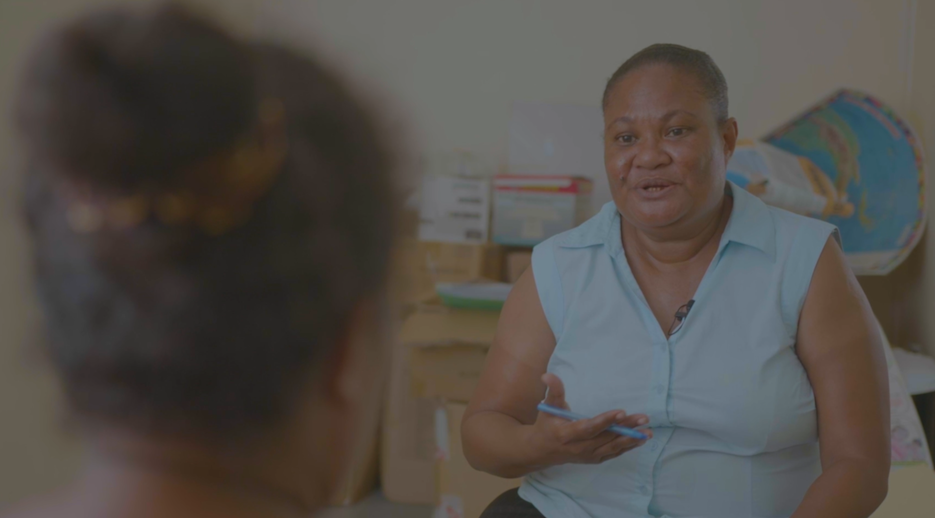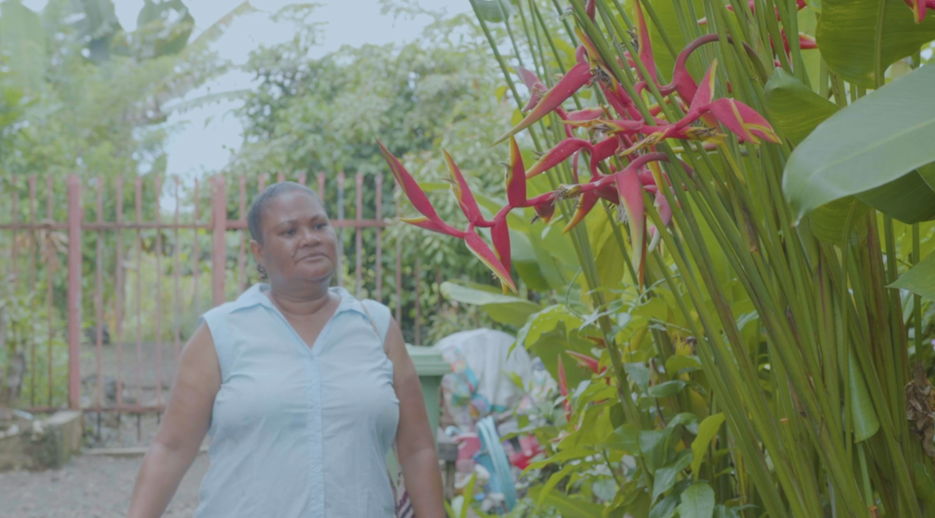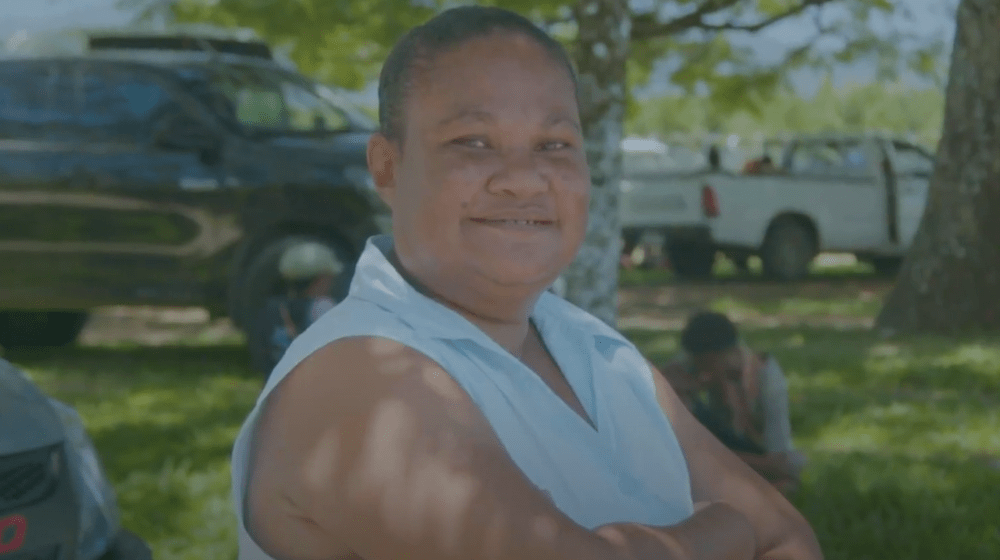“The health team sees gender-based violence survivors every day, but we used to treat them as general outpatient cases. We’d treat their injuries and send them home again, not knowing that this person is going back to a violent home. They’d keep coming back with more injuries, more abuse.”
Edna is a social worker with the Provincial Health Authority in Papua New Guinea. She manages a hospital’s Family Support Centre, which provides services to people who experience gender-based violence - primarily women and girls.
She and her colleagues recently participated in a training to improve the health system’s support to survivors of gender-based violence in Papua New Guinea.
“Before it was quiet. Gender-based violence was a hidden topic we couldn’t talk openly about.”
Beyond medical care
But now that hospital staff have learnt more about gender-based violence - that it is caused and perpetuated by gender inequality, and how it physiologically and psychologically harms individuals - things are changing.
“The health workers are beginning to understand that these are not only medical illnesses, but there is a lead up to that medical illness.”
For example, children may come to the hospital’s outpatient clinic with symptoms like bed wetting, night terrors or severe behavioural issues. Instead of treating patients solely from a medical perspective, health workers now take a psychosocial approach as well. When women disclose or show signs of violence, they are told about options - following best-practice protocols - including a referral to the Family Support Centre, which Edna manages.
Survivor knows best
“When we take an adult client on board, we start by listening to what the survivor has to say. I see how I can best assist them, giving them options."
"We let the choices be made by the survivor, because she knows best about her safety, where she’s comfortable or who she should see.”
This is a hallmark tenet of survivor-centred approach to gender-based violence care: listening to survivors; upholding their dignity; and honouring their choices and decisions on the services they want for their recovery journey.
Health workers and other service providers in Milne Bay and Bouganville are learning this approach via the ‘Her Health and Dignity, Our Priority’ programme. This UNFPA and Zonta International initiative improves opportunities for survivors to leave the cycle of violence - if they wish to - by providing easier access and more options for survivor-centred care. Frontline workers from a range of service sectors are training in gender-based violence core concepts, clinical care, case management and referral procedures.
“We realised it’s not only health workers that deal with gender-based violence; there are other services the hospital can refer survivors to for further assistance, like legal help or safe houses, so we began to expand our referral pathways. We also advocate with young people to start understanding what gender-based violence is, so now we start receiving a lot of people seeking help.”
As cases increase, the Family Support Centre was recently renovated to enhance services for survivors - especially their privacy and safety.

Simple solutions go a long way
Doors on treatment rooms, a separate toilet for patients, a playroom for children, a back-door ‘escape.’ These new features may seem modest, but for Edna and her team, they are significant.
“The centre was just open and anyone could walk in and out of the building. Now we have a room to see patients and it actually has a door so we can speak with survivors privately and maintain confidentiality.”
The refurbishments also provide short-term accommodations for at-risk women and girls and those who arrive late in the evening after travelling long distances, reducing the pressure on staff to provide overnight accommodation in their own homes.
Bringing it home
For Edna, it is indeed hard to avoid taking her work home; the emotional toll of her days often follow her.
“It's very difficult when you go home because sometimes you have this pressure on you and it affects the family as well."
"I want to make sure I'm not sending a survivor back, risking that person's life, while I go home to my home, which is safe. Everyone has a right to stay in a safe environment, a safe community.”

UNFPA Papua New Guinea, with support from Zonta International, is working to enhance the quality of services available to women experiencing violence, and the coordination between service providers. The ‘Her Health and Dignity, Our Priority’ programme aims to ensure that survivors of gender-based violence have more effective support for their long-term recovery and improved opportunities to leave the cycle of violence.
Quotations lightly edited for clarity.


